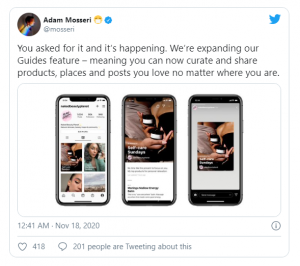— May 22, 2019
We knew this instinctively: Companies with thriving cultures are more likely to thrive in general. But this gut feeling is backed up by recent research from Grant Thornton and Oxford Economics, which found that organizations with an “extremely healthy” company culture were, over the past three years, 1.5 times more likely to experience more than 15 percent average revenue growth. While Deloitte reports that 94 percent of executives and 88 percent of employees already believed that a good corporate culture is important to a business’s success, now we have proof of the financial payoff.
The question is not whether to invest in culture. The question is how to develop a healthy culture that advances a company’s success.
Events Can Establish a Great Culture
Creating and nurturing company culture requires talent and finesse, but one of the best ways to help it along is through company events. In a survey of small business owners, 96 percent said that company events produce a positive return on investment. Organizations large and small can benefit from the engagement, validation, and community building that these events generate.
Culture events can and should vary from company to company. Twitter employees, for example, can join affinity groups and business resource groups that champion inclusivity through event sponsorships, group outings, and even festival brunches. Fitbit and Motley Fool encourage wellness with CEO challenges and active meetings. These companies have found what’s most resonant for their company events and focused on that.
Create company events that strengthen your culture by following a few general guidelines:
1. Dedicate internal resources.
To create the kind of culture that has employees excited to come to work on Monday, it takes some money and some human power. However, many companies aren’t dedicating sufficient resources to internal company events. In a survey by Eventbrite, 50 percent of event creators said that fewer than five people comprise their events team.
It’s crucial to enlist engaged employees to your event planning cause. Zoom, for instance, has created happiness crews at each of its locations to maintain a close-knit culture through events, celebrations, and community involvement. Not coincidentally, it was recently named the best place to work in Denver.
These happiness crews plan events like Habitat for Humanity volunteer days (they reward participants with a rubber duck they can display proudly), Bring Your Parent to Work Day, and the Zoom Olympics. Employees at Zoom report that they feel like they can contribute on a daily basis because of the company culture. “Our employees care so much about our culture that they volunteer their time planning office events and celebrations,” says Ashley Borlaug, technical recruiter at Zoom.
2. Paint the bigger picture.
Recalibrating and reaffirming employees’ purpose reminds them that their work matters. That’s why Gallup deems personal connection to the company mission one of 12 crucial elements of employee engagement. “Recalibrating and reaffirming their passion reminds them that they’re in the right place and that their work really matters,” says Craig Chaplin, executive creative director at Kindle Communications. “There’s no better format than a live face-to-face experience to do just that.”
Communal volunteer events can unite employees around a shared vision while affirming value alignment. It’s no secret that today’s employees, especially Millennials and Gen Zers, want to invest in the world around them and want their employers to do so as well. In fact, when employees feel connected to their companies’ philanthropic efforts, turnover decreases by about 57 percent.
Salesforce topped People’s Companies that Care list in 2018, largely because the company offers employees seven days per year to volunteer. In recent years, the Salesforce family has also participated in the Leukemia and Lymphoma Society’s annual Light the Night Walk. Leading up to the walk, employees organize fundraising events such as drink tastings, trivia nights, and bake sales. Community focus like this can’t help but strengthen employee-employer relationships. Make it part of your company mission, and then act on it through your events.
3. Galvanize creativity through play.
Employees whose creativity is both expected and scheduled tend to do better, more innovative work, according to Gallup. Creating thinking requires release time, and when managers recognize and allow this, the business profits and employees are happier.
People need time to be creative when working and when playing. Of course, creative work projects require space for reflection and ideation, but there are also benefits to scheduling time for play. When companies plan activities like cook-offs, board game tournaments, karaoke contests, or room escape outings, they give their employees a chance to think creatively, get to know each other outside the office, and destress.
“Events actually are just a part of a larger strategy to help engage employees more in the workplace and make their jobs and the places they work a more interesting place to be,” says Damon Guidry, global event strategist at Adobe. That’s why his company invests in gamified team-building events like The Go Game.
Company events offer one of the best ways to solidify organizational culture. From validation to volunteering, from networking to noshing, company events allow employees to get to know one another on a more personal basis, to become champions for their communities, and to create common goals. The best companies know that building strong relationships — within the community, team, organization, and beyond — mean a more solid cultural cornerstone (and even a stronger cash flow) for everyone.
Business & Finance Articles on Business 2 Community
(64)





